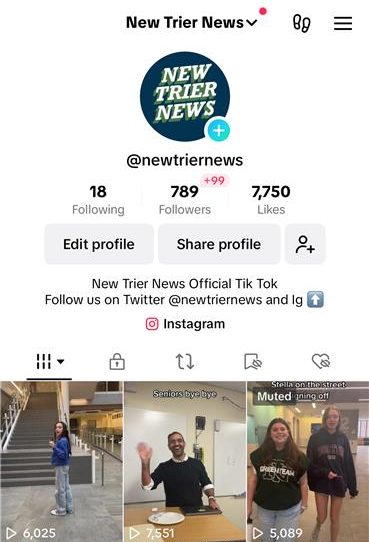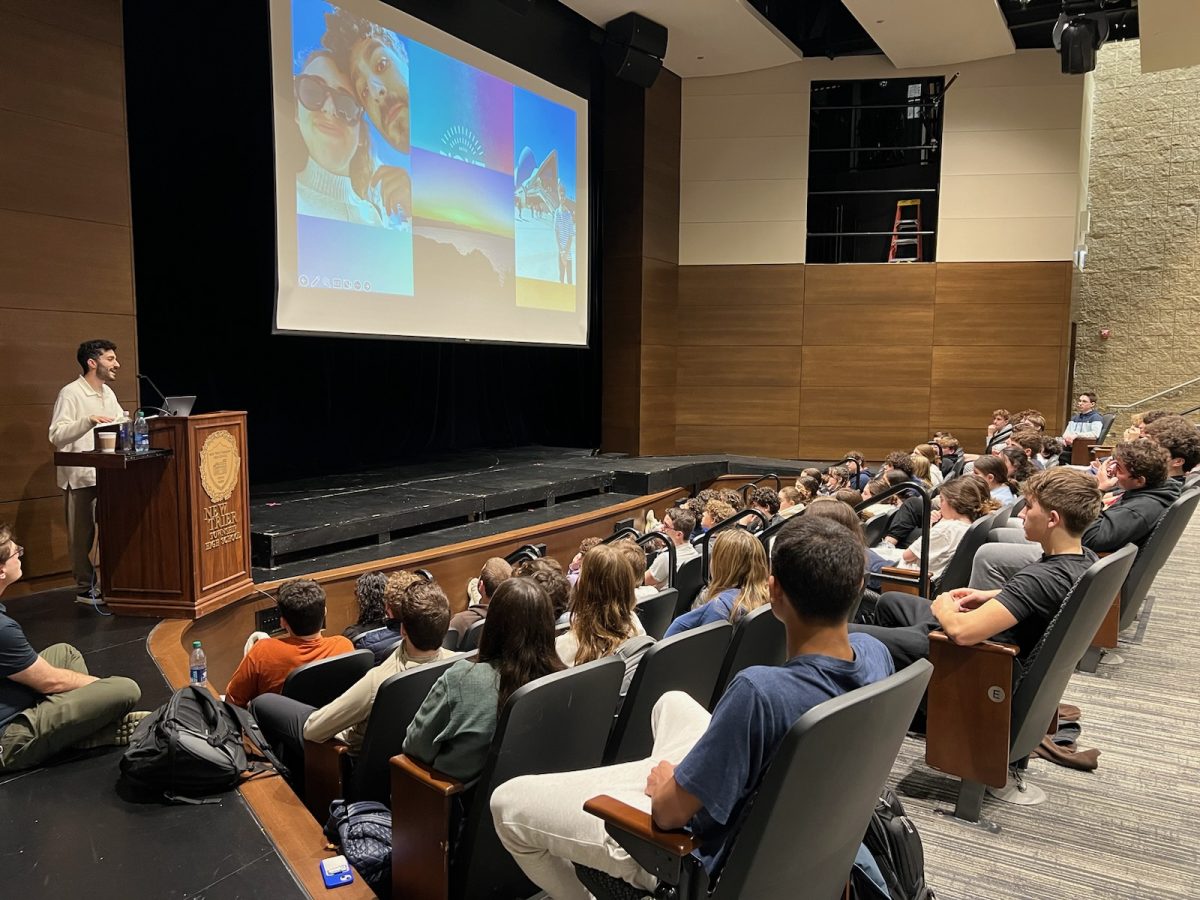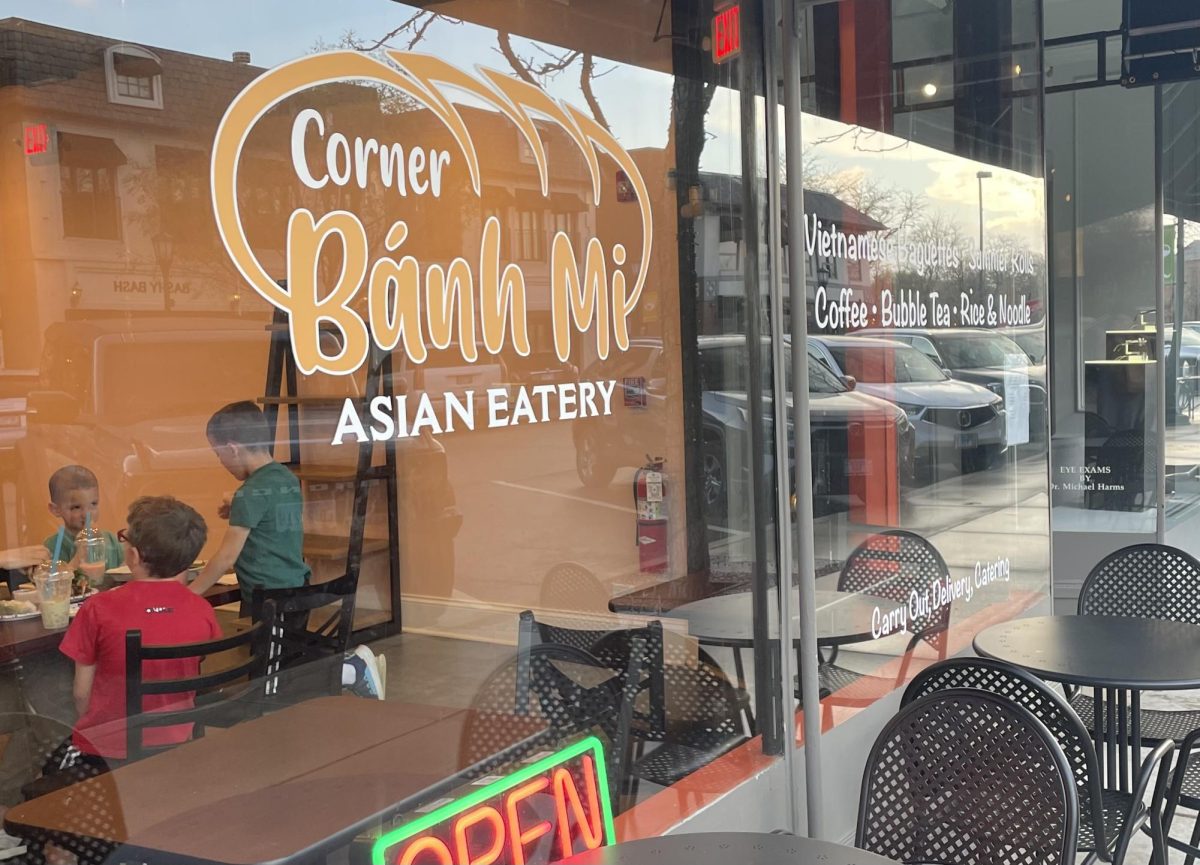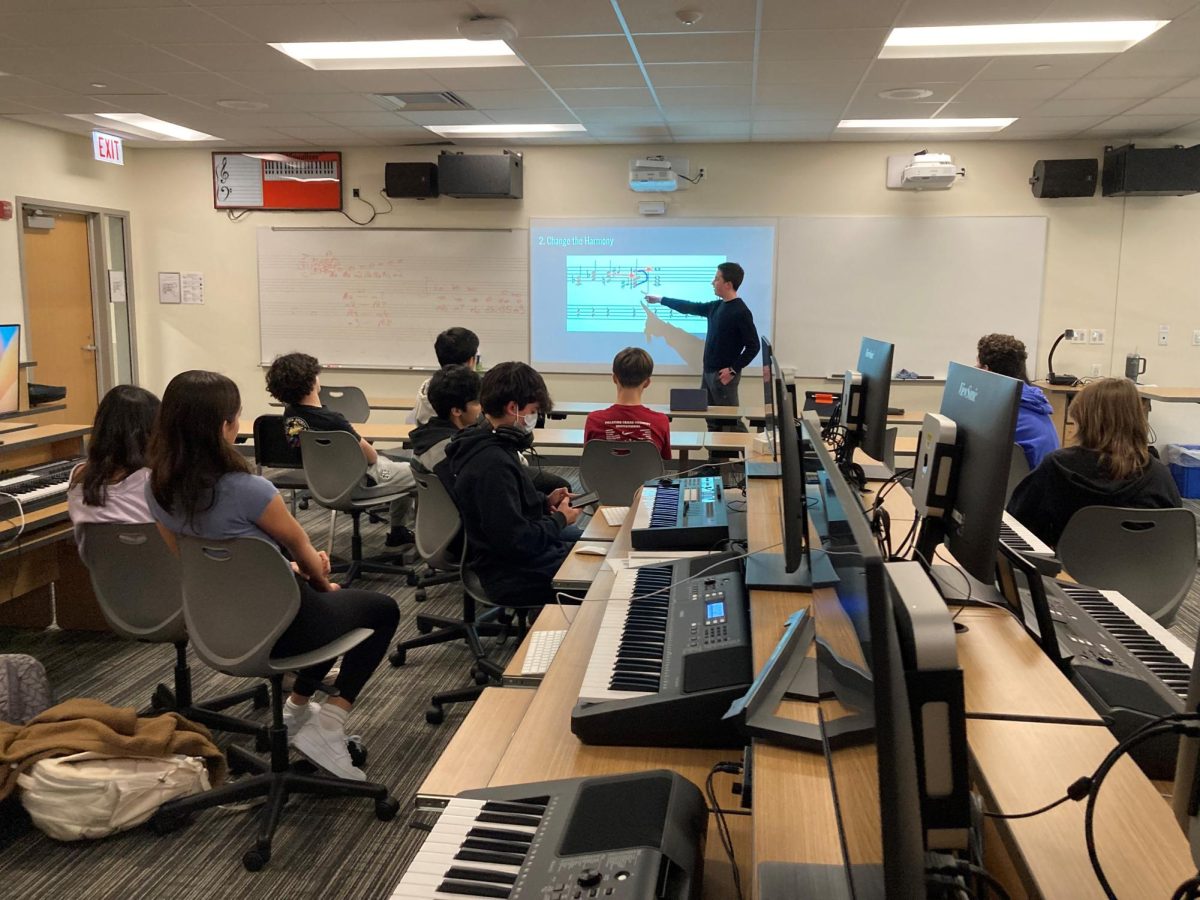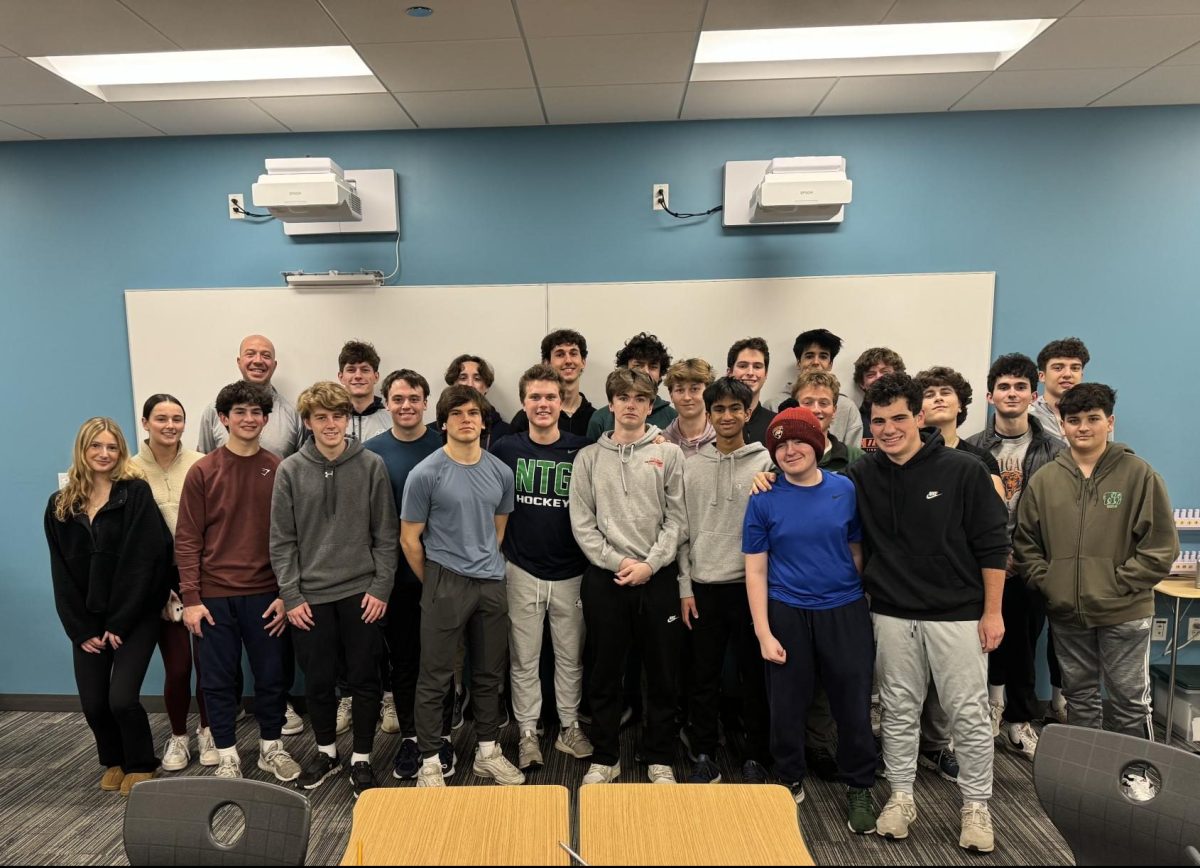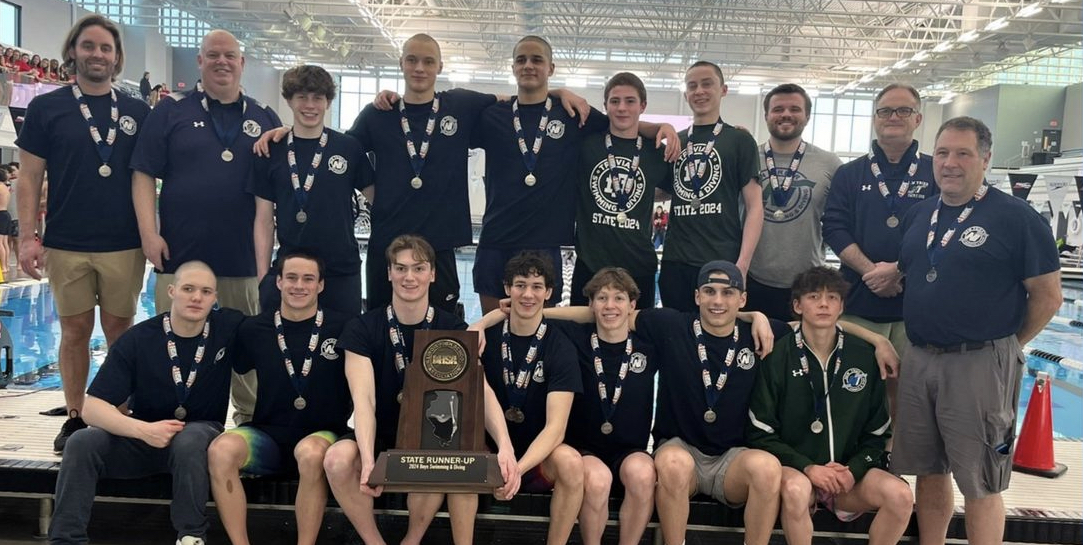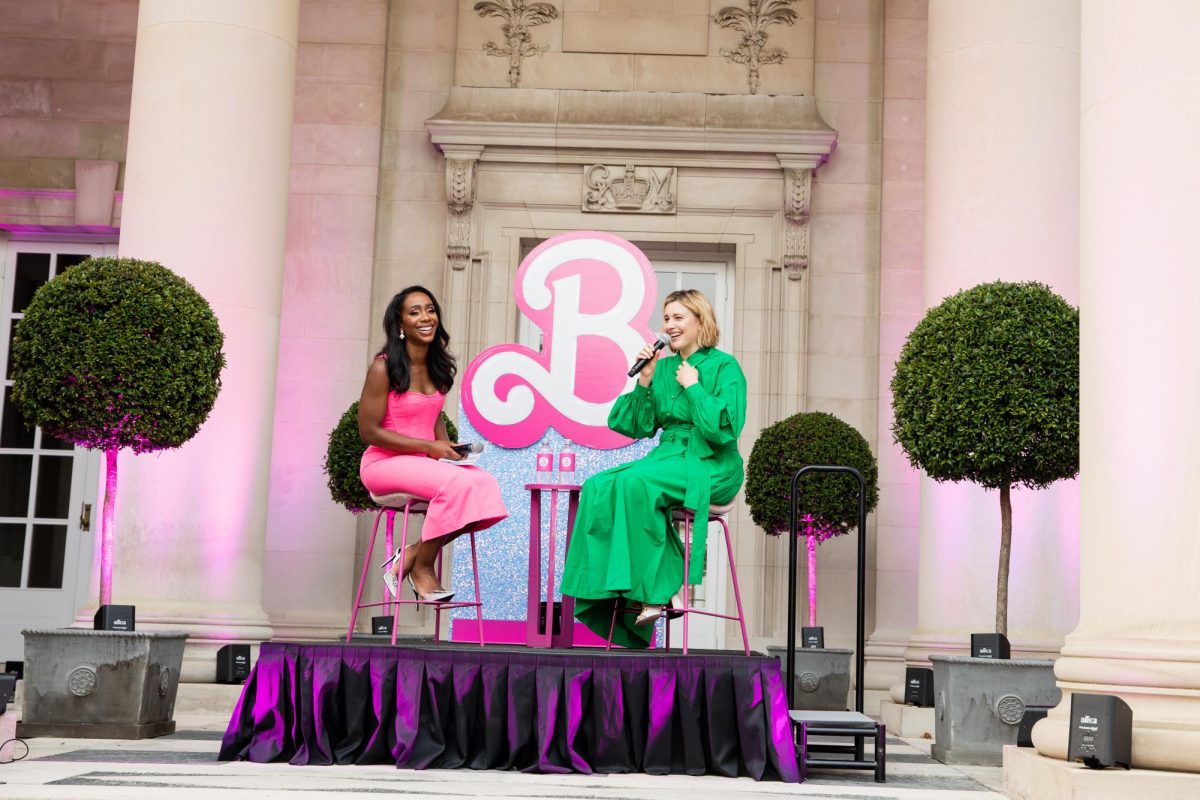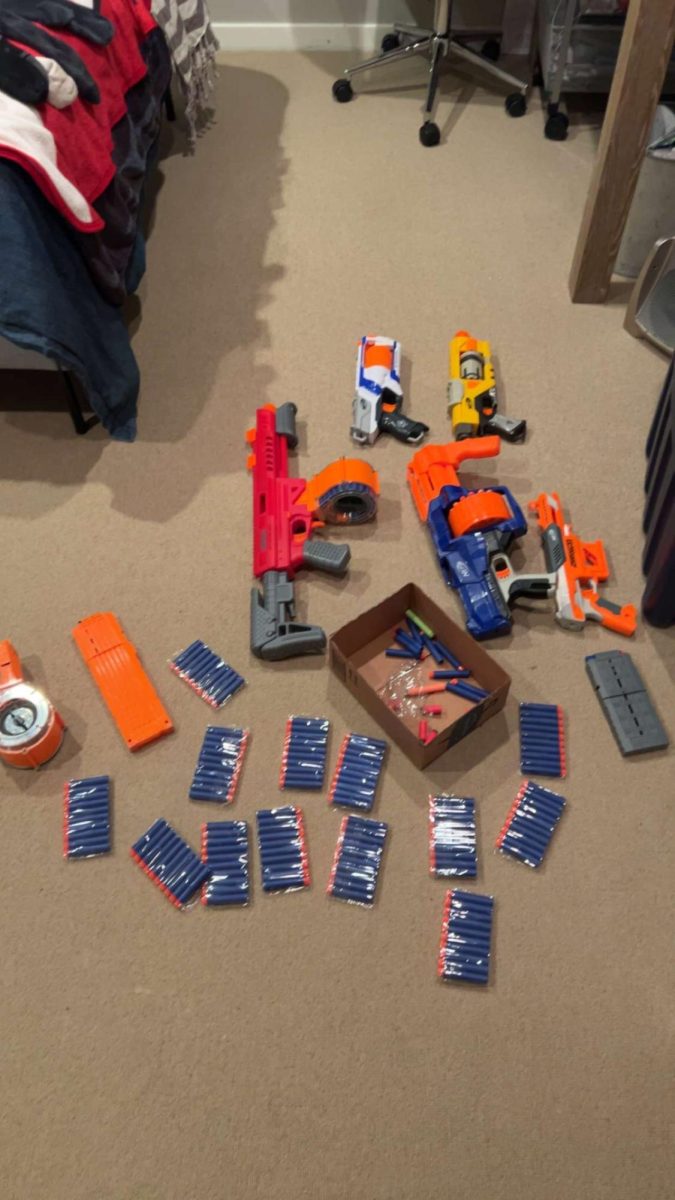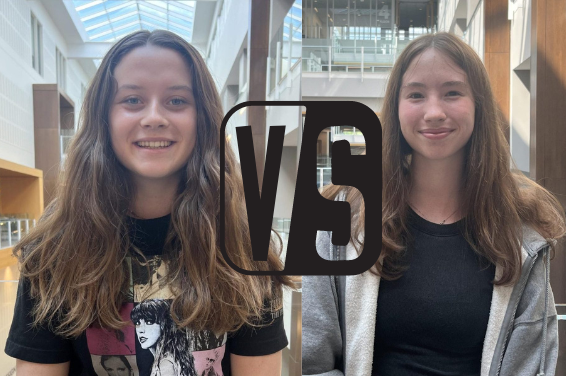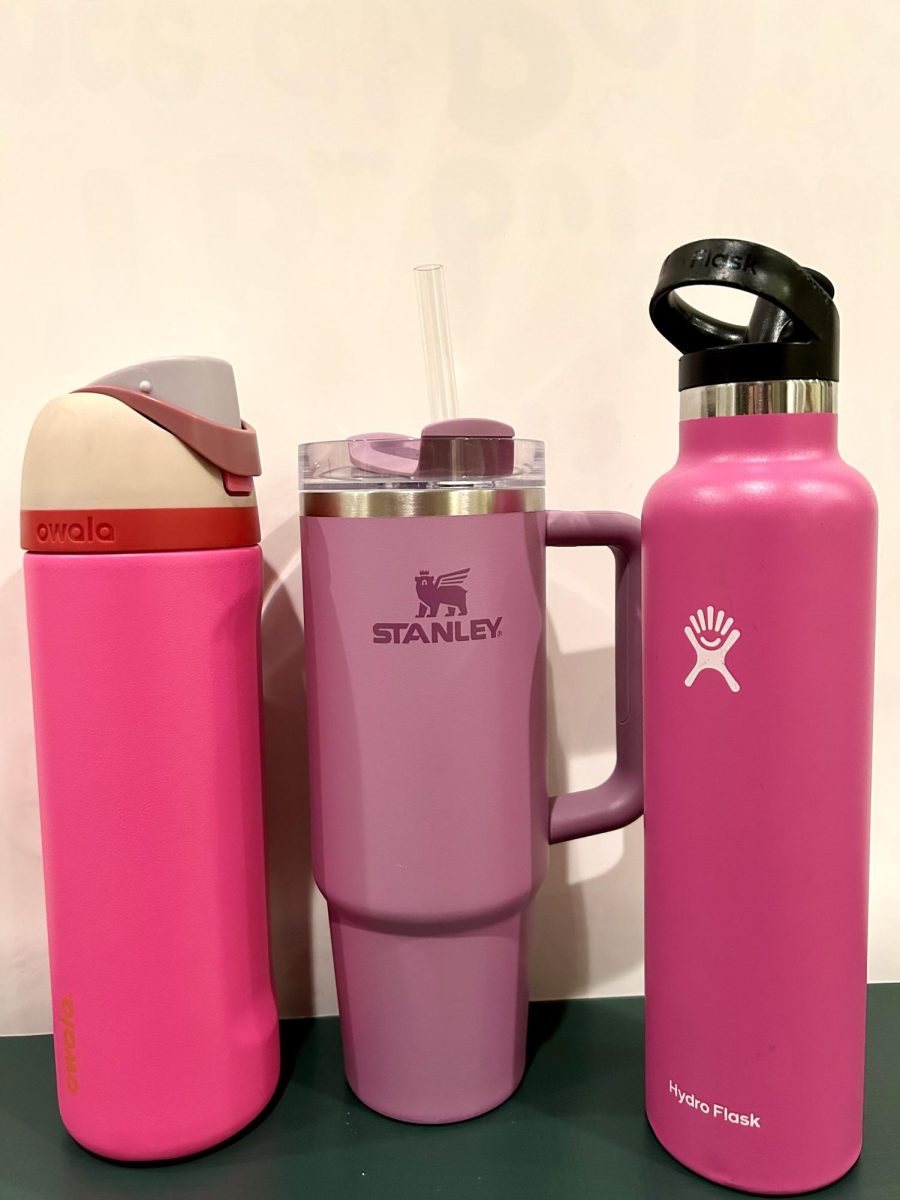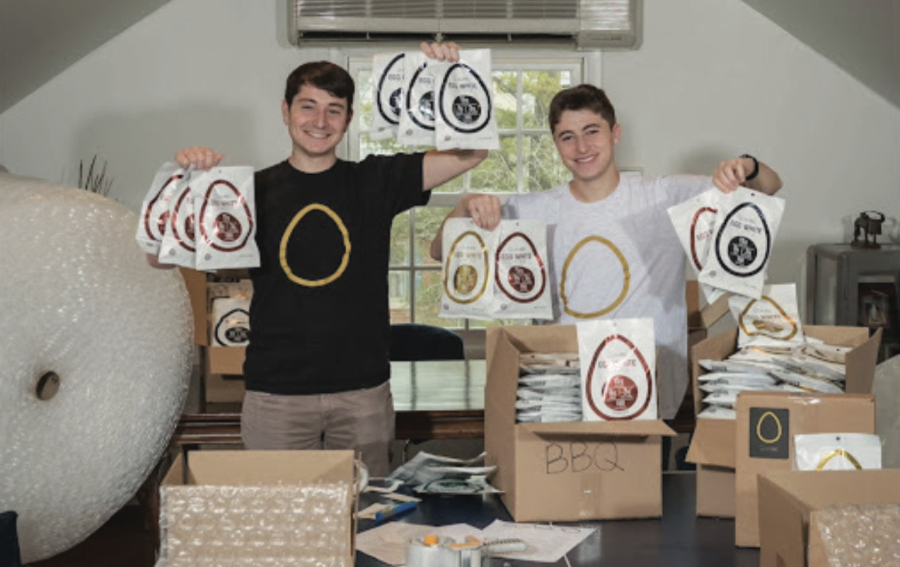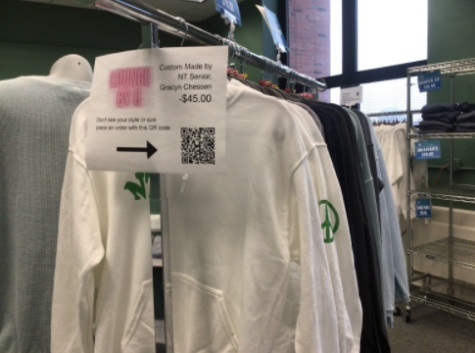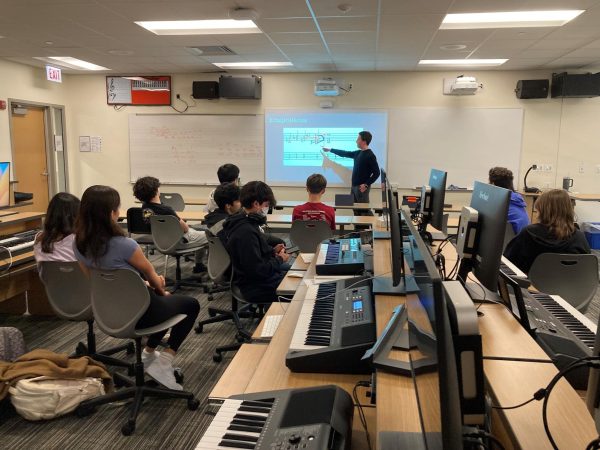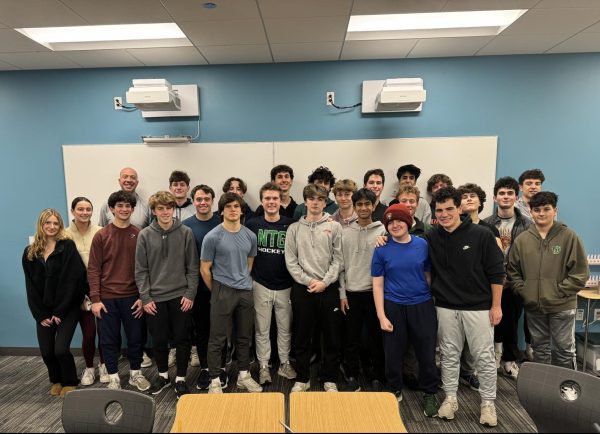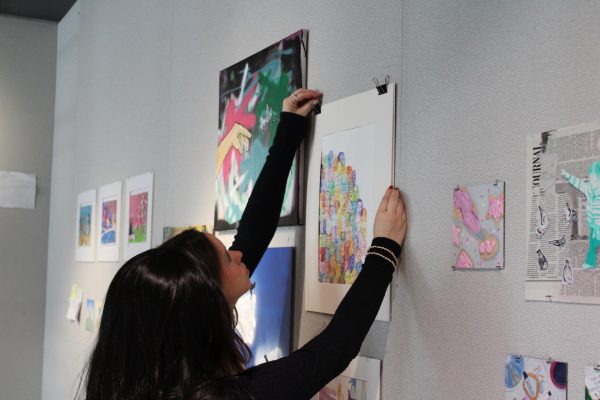Class of 2016 graduates snatch deal on Shark Tank, launch business
New Trier alumni egg-white chips brand and pitch deal to shark, Daniel Lubetzky
Co-founders Nick Hamburger and Zack Shrier display product of the egg-white based chip company they created, Quevos
It all started with an omelette. Or rather, the crispy edges of an omelette.
2016 graduate Zack Shrier noticed how he loved the edges of a crispy omelette. Diabetic, he cooked eggs often as a low-carb snack and thought of the idea to have an egg- white chip. He worked with his friend Nick Hamburger and together they founded the company Quevos, a low- carb egg-white based chip company.
“That was how we got the idea and worked for a very long time from there to make a real snack product,” said Hamburger, CEO of Quevos.
It took years of hard work to actually develop the chip and the packaging and the manufacturing plant and start getting on store shelves.
— Nick Hamburger
In their sophomore year of college, they took the idea to a pitching competition in the New Venture Challenge Entrepreneurship course at University of Chicago, winning the competition and receiving a $15,000 grant to launch Quevos. Hamburger decided to drop out of college to pursue the business full-time. Shrier went back to school, and Hamburger became CEO.
“I heard that he was going to drop out of business school, which was really surprising. I knew that he had the entrepreneurial spirit. I think that he’s a go-getter and he knows how to learn things on his own versus having to go through 4 years of business school to get a certain degree,” said business teacher Bob Bollweg.
The two knew they were interested in business from an early age, beginning to pursue the passion in middle school when they sold Ramune, a Japanese soda, to classmates. Hamburger furthered the interest in high school where he took Financial Management and found interest in the stock-market simulation.
“I think it was helpful to learn some of the basics of business. It was really fun and it definitely got me really engaged,” he said. “It’s not real money, but you’re simulating and you’re trying stuff out, so that was pretty cool. I know in the current entrepreneurship class you come up with an idea and you kind of simulate and start a company so I think that’s really cool.”
Bollweg found him to be an engaged student in his Financial Management class. “He was always interested in what’s happening in the stock market. I think heended up in first place at the end of the semester in our stock market challenge… he was just very curious, into business topics, and an independent learner also. He was able to figure things out on his own.”
Producers of the business reality show Shark Tank reached out to the company in February of 2020. They applied to the show and went to LA to film in the summer of 2020. The episode aired on January 22nd, 2021.
Hamburger and Shrier looked into other episodes on Shark Tank before pitching themselves, and were able to learn from them in order to have a successful pitch. They found that having concise responses was beneficial.
“We had short and simple answers— we watched a lot of episodes before we went on where someone would get asked a question and they rambled or stumbled, and that’s when people started to question ‘do you know what you’re doing?’ I was glad we practiced a lot of Q&A because I think that helped us to have a lot of clean, simple, and short answers,” he said.
After landing a deal with Daniel Lubetzky, founder of KIND, they were able to improve the packaging of the product.
“He was pushing us to change the packaging because it didn’t make the product look that appetizing, and it didn’t have a lot of energy and brand personality. So the new packaging that we just launched— he helped us a lot with it— just added a lot more fun and personality to the bag,” Hamburger said.
The CEO feels rewarded when he sees his product on grocery-store shelves.
“It took years of hard work to actually develop the chip and the packaging and the manufacturing plant and start getting on store shelves. So now when I see the product in Mariano’s or at Whole Foods it’s a great feeling to know everything that has gone into it to get it there,” he said.
He visited New Trier recently and spoke to the Entrepreneurship Start-Up class and DECA club about his experiences.
“I love the fact that he comes back to school and speaks to DECA and business classes and he brings samples and shares all this advice with people. It shows how really approachable he is which is a really great thing,” said his adviser Eric Stewart.
The co-founder remembers the motto of New Trier, “To commit minds to inquiry, hearts to compassion, and lives to the service of humanity.”
“It’s stuck with me and I think it’s quite a beautiful and profound motto, not only for educators to have, but also for your own life, if you apply it to yourself,” Hamburger said.
His advice to other students who are interested in starting a business is to fulfill a need that the customer desires.
“It’s all about fulfilling a need for a group of people who want your product. It’s not about what you think is cool, what you think is interesting,” he said.
He also advises to launch the product early on to get customer feedback.
“Don’t spend two years developing your app, launch it and realize no one even wanted it. You know, spend three months, six months and get something out there—doesn’t have to be pretty— just see what people will think and start building it for them, not for your own vision.”



